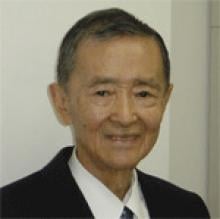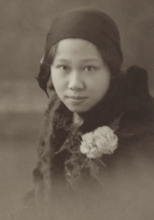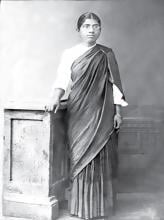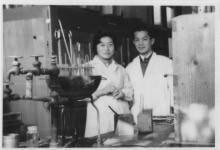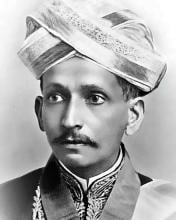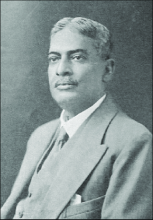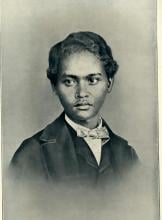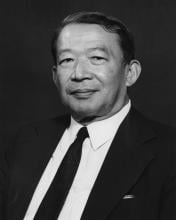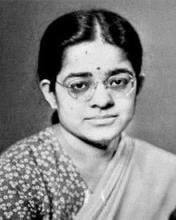People
News

26 Jan 2006
WCS has just released “State of the Wild” a 300-plus-page compendium of wildlife facts, figures and issues affecting the survival of wild species worldwide.
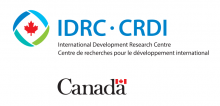
23 Jan 2006
In Asia, distance education using information and communication technologies is proving to be an efficient way of delivering high-quality education. And by making higher education affordable and accessible, it is helping to address equity issues.

19 Jan 2006
Iraq investigating possible bird flu death; STMicro Lab-On-Chip Detects Bird Flu; Fifth child death linked to bird flu; World Leaders Pledge $1.9 Billion; Bird Flu Suspected Child Dies in Mus; China announces 6th human death; Pandemic fear boosts pledges at conference; FAO Warns Europe over spring migrations; Poultry farmers feel impact of bird flu

18 Jan 2006
The papers in this issue cover wide ranging topics including 3G wireless telecoms; the media and the pregnancy of Princess Masako; journalism in Japan; universal service - government vs. governance; the Japanese broadcasting market; Y2K and risk perception in newspapers

18 Jan 2006
Turkey fails to stop Bird Flu; EU, Roche increase commitment; Bird flu claims 2nd sibling; Call for global effort; Bird flu could cost insurers $US133 bln; Children Seen at Risk..; Cyprus guards against bird flu, wants more drugs; Drug firm ups WHO donation by 2 million doses; Global conference aims to pool financial resources on curbing bird ...

17 Jan 2006
Turkey culls 932,000 fowl; Nabarro Begs Richest Nations; Israel scare proves unfounded; £560m pledged to help poorer nations; Indonesian girl dies; Middle East on high alert; Iran readies for spread from Turkey; Situation in Turkey; Commissioner Kyprianou visits China; France learns from VN's experience

16 Jan 2006
Fourth Turkish child dies of bird flu; Is Bird Flu Overhyped?; Syrian border cities take precaution against bird flu; Cash set to help Kyrgyzstan, Turkey fight bird flu; Suspected bird flu case in Germany-newspaper; Bird flu review 'complacent'; UK investigators seize massive haul of suspected stolen bird flu;

12 Jan 2006
The concept of organic farming seeks to re-establish the balance of energy in Nature without using chemical fertilizers and pesticides. This is mainly based upon traditional methods derived on sound ecological principles. In the present paper, such methods were reviewed in the Jammu and Kashmir area.

12 Jan 2006
G-SEC, has set up 3 Core Research Subjects (I) Studies on Global Innovation Systems, (II) Studies on Asian Security System and (III) Studies on Emerging Crisis for Human Security
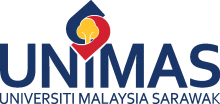
12 Jan 2006
This working paper deals with issues surrounding evolving cultural and religious practices and indigenous artefacts in the face of tourism and Christianity in Borneo (Sarawak, Malaysia).
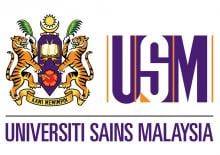
11 Jan 2006
In this paper A. V. M. Horton, a specialist on Brunei history scans the registers of correspondence relating to Brunei (1906-34) held in the National Archives at Kew, UK.
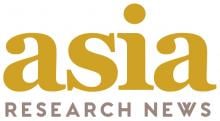
10 Jan 2006
The IAHA is a loose network of historians and scholars whose geographic focus is Asia. Held every two years, the IAHA conferences provide Asian specialists an opportunity to come together and share the fruits of their scholarship.

09 Jan 2006
In his paper he suggests that the embedded diplomatic and security culture of the ‘ASEAN way’ is increasingly becoming counter-productive to the construction of a genuine security community

07 Jan 2006
Madagascar has just added 1 million hectares to its protected area network, helping to protect the island's forests and the animals that live there (lemurs, geckos, etc.). This is part of the country's larger goal to set aside more than 10 percent of the Madagascar's wild lands in protected areas.

05 Jan 2006
IJAPS is a scholarly, multidisciplinary, internationally refereed publication focusing primarily on Asia (South, Southeast and East), Australasia and the Pacific Rim regions of the Americas (North, Central and South).

04 Jan 2006
For the past few years, the Institute has supported research projects on “Media Stereotyping,” “Power and Journalism,” “Internet Development and Civic Culture in Japan,” and “Content Distribution in the Asia and Pacific Regions.”

04 Jan 2006
This paper reflects upon the recent vigorous empirical and policy debate about whether significant mineral endowments are a blessing or a curse for the large number of developing nations that possess them.

30 Dec 2005
India is the third-largest coal miner after China and the US. This paper examines the illegal coal economy, attempts to explain it, provides some policy suggestions and an estimate of the amount of coal supplied in this manner throughout the eastern Indian coalfields of Jharkhand and West Bengal.

30 Dec 2005
The topics in this issue include small-scale illegal coal supply in India; Are minerals a blessing or a curse? Impact of education on economic development in Nigeria; Environmental economics in practice; Outgrowing the Earth: The food security challenge

14 Dec 2005
The book should provide an interesting reading for policy-makers, reform consultants, and academics and help inculcate added pragmatism in their work on the electricity sector reforms.

14 Dec 2005
This report gives readers an overview of the research activities within Keio University with excellent summaries of their achievements and current projects

14 Dec 2005
One of the most important findings of the research is that about half of supplemental irrigation amounts currently applied may be saved with only 10-15 % yield loss.

11 Dec 2005
Why do power sector problems persist in Bangladesh? What can be done to solve them? This report assesses the barriers to accelerated electrification - in particular the barriers to rural electrification – and puts forward practical recommendations.

07 Dec 2005
First International Conference on Nutrigenomics, 11th Biennial Symposium on Literature and Cultures of the Asia-Pacific and 8th Sustainable Development Conference.

07 Dec 2005
The studies reveal that even in the dry areas, which are characterized by water scarcity, available water is not used efficiently for agricultural production due to farmers’ practices and prevailing policies on water.

04 Dec 2005
In this paper, we use South Africa as a case study to discuss the relationship between access to finance, economic growth, and sustainable development.

13 Nov 2005
The General Agreement on Trade in Services and poor people's right to water

09 Nov 2005
There are about 36 million labors working in agriculture sector in the country, who are not covered by pensions. Similarly migrant workers do not receive any pension.

09 Nov 2005
Despite the improvement in newborn health care services neonatal and infant mortality rate has not significantly declined. In India 26 million babies are born every year, out of which 1.2 million die before completing the first four weeks of life.

30 Oct 2005
This study was formulated with an objective of studying the factors influencing the utilization of health services in the spectrum of antenatal, intranatal and postnatal periods of a mother.
Researchers
Sorry, no researchers coming up for this topic.
- « first
- ‹ previous
- 1
- 2
- 3
Giants in history
Michiaki Takahashi (17 February 1928 – 16 December 2013) was a Japanese virologist who developed the first chickenpox vaccine.
Maggie Lim (5 January 1913 – November 1995) was a Singaporean physician who promoted family planning and expanded the access to clinics to improve the quality of life for mothers and children in Singapore’s early days.
The founder of the Adyar Cancer Institute in India, Muthulakshmi Reddy (30 July 1886 – 22 July 1968), fought to uplift women and girls from impoverished situations.
Through her iconic stories featuring fictional scenes from the history of the Philippines, language teacher and academic Genoveva Matute (3 January 1915 – 21 March 2009) helped strengthen the Filipino identity.
Tsuneko (7 June 1933) and Reiji Okazaki (8 October 1930 – 1 August 1975) were a Japanese couple who discovered Okazaki fragments – short sequences of DNA that are synthesized during DNA replication and linked together to form a continuous strand.
Sir Mokshagundam Srinivasa Shastry Vishveshwarayya (15 September 1860 – 14 April 1962) is widely regarded as India’s most outstanding engineer. In a career that spanned almost his entire life, Vishveshwarayya played a pivotal role in several engineering projects, including designing the Krishnarajasagara dam that is still the source of irrigation and drinking water for parts of Karnataka today.
Indian scientist and physician Upendranath Brahmachari (19 December 1873–6 February 1946) is best known for creating a drug called Urea Stibamine, used to safely and reliably treat visceral leishmaniasis (or Kala-azar), a severe infection caused by the Leishmania parasite.
Little is known about Ali, a teenager from Sarawak, Malaysia, who was chief assistant to the famous naturalist Alfred Wallace. Most of what is known comes from Wallace’s writings. Ali accompanied Wallace on expeditions throughout the Malay Archipelago from December 1855 to February 1862.
U Hla Myint (1920 – 2017) was a celebrated economist from Myanmar. Considered a prodigy, he was admitted to Rangoon University to study economics when he was just 14 years old. He went on to earn a Ph.D. at the London School of Economics (LSE).
Rajeshwari Chatterjee (24 January 1922 – 3 September 2010) was the first female engineer from Karnataka in India.


